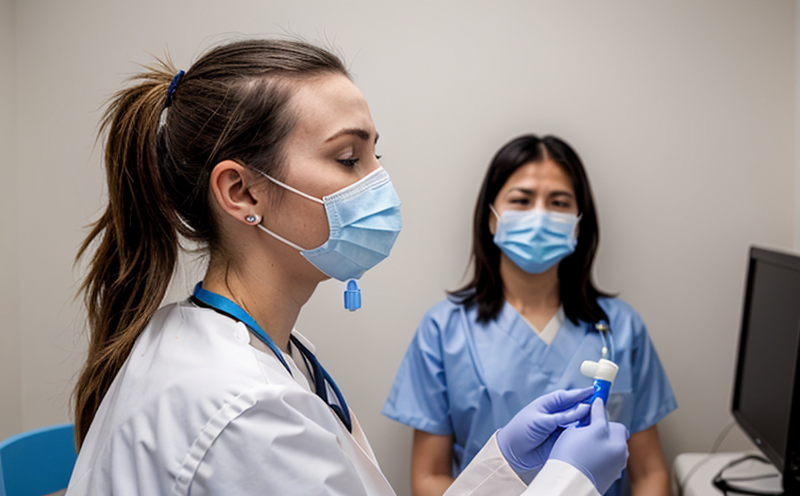Respiratory Bacteria Testing in Kennels and Shelters
In kennels and shelters, respiratory bacteria testing is a critical aspect of maintaining high standards of animal health and welfare. Respiratory diseases are one of the most common health issues affecting animals in these environments due to factors such as overcrowding, poor ventilation, and stress.
Respiratory bacteria testing helps identify potential pathogens that could cause infections in dogs and cats, leading to respiratory distress or pneumonia. By detecting these bacteria early on, we can take preventive measures to protect the health of animals in our care. This service ensures a safe environment for both residents and visitors by identifying and addressing any potential risks promptly.
Our laboratory utilizes advanced microbiological techniques and state-of-the-art equipment to provide accurate results within 48 hours from sample collection. The testing process involves collecting swabs or samples from affected areas, followed by culture and identification of bacteria responsible for respiratory infections. This approach allows us to offer precise insights into the microbial ecology of your facility.
Understanding the specific bacterial flora present in kennels and shelters is essential for effective infection control strategies. Regular monitoring enables facilities to implement targeted interventions aimed at reducing environmental contamination levels, thereby minimizing disease transmission rates among animals.
The importance of this testing cannot be overstated, especially given the challenges posed by zoonotic diseases that can spread between humans and animals. By identifying and managing respiratory bacteria effectively, we contribute significantly towards safeguarding public health as well as ensuring optimal care for all pets under our supervision.
Why It Matters
Respiratory infections in dogs and cats can have serious implications not only for the affected animals but also for human health. Bacteria like Bordetella bronchiseptica, Streptococcus pneumoniae, Mycoplasma spp., and Haemophilus parasuis are commonly implicated in respiratory illnesses observed in shelters and boarding facilities.
- Prevention of Spread: Early detection through regular testing allows for prompt isolation or treatment of infected animals, preventing the spread of disease within the facility.
- Promotes Animal Welfare: Healthy living conditions are crucial for maintaining good quality of life in sheltered pets. Effective management of respiratory bacteria ensures that all residents remain free from harmful pathogens.
- Reduces Stress on Staff and Volunteers: With fewer outbreaks, staff can focus more effectively on other aspects of animal care without being distracted by frequent health crises.
Benefits
Regular respiratory bacteria testing offers numerous advantages for kennels and shelters:
- Promotes Animal Health: Identifying and treating bacterial infections early helps prevent severe complications such as bronchitis or pneumonia.
- Enhances Public Confidence: Demonstrating proactive measures against respiratory diseases can significantly improve public perception of your facility's commitment to animal welfare.
- Avoids Economic Losses: Preventing outbreaks saves money by avoiding costly medical treatments and potential closure due to health concerns.
Quality and Reliability Assurance
We adhere strictly to international standards such as ISO/IEC 17025, which governs our quality management system. Our team consists of highly qualified professionals who are committed to delivering reliable results consistently.
The testing process begins with proper sample collection and transportation protocols designed to maintain the integrity of biological materials throughout transport. Samples are then processed using standardized methods approved by relevant authorities. Finally, results are interpreted based on clinical significance rather than mere presence of bacteria, ensuring that actionable recommendations are provided.
Our laboratory also participates in proficiency testing programs organized by recognized bodies worldwide to validate our analytical capabilities and ensure continuous improvement. By maintaining these rigorous standards, we commit ourselves fully to providing accurate, trustworthy information about the microbial environment within your facility.





